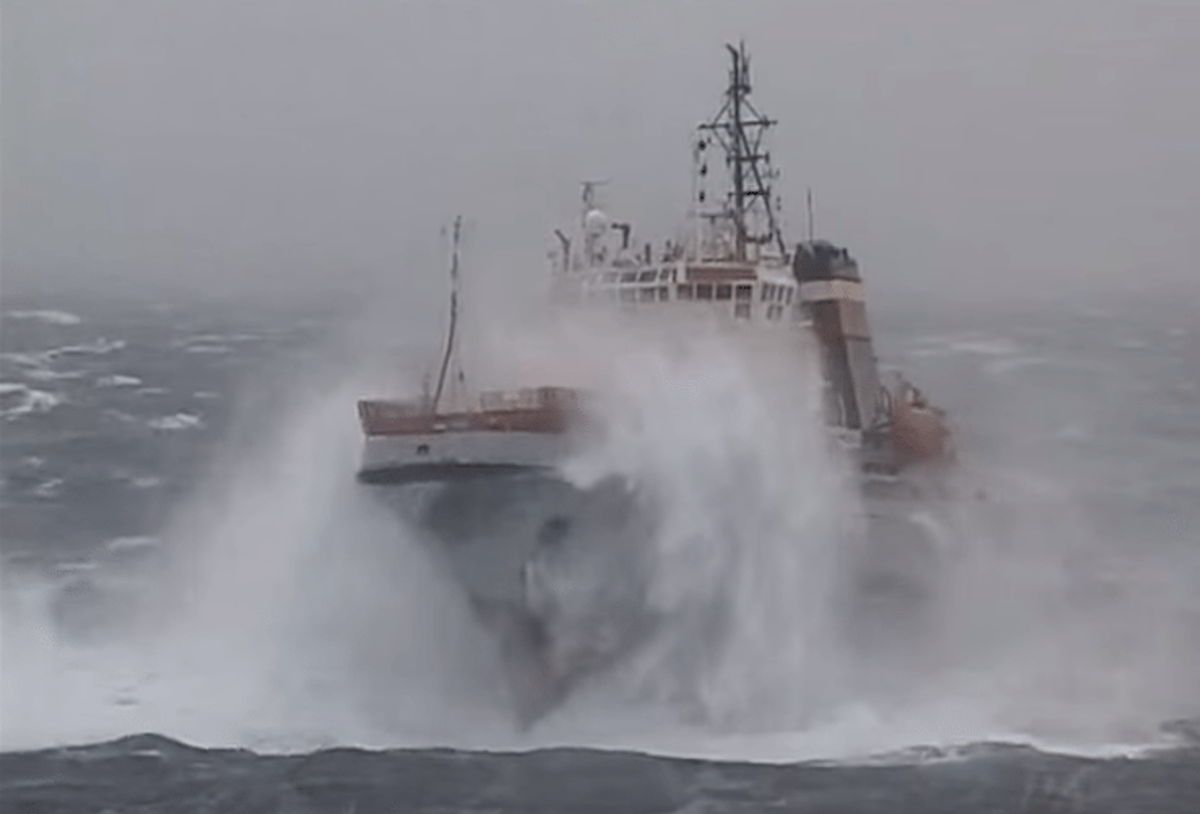LTI: Damage and personal injury arising from heavy weather
- Safety Flash
- Published on 27 February 2024
- Generated on 14 July 2025
- IMCA SF 05/24
- 3 minute read
Jump to:
A weathertight door in the crane pedestal from the main deck to the crane room was forced open by a large wave.
What happened
On a vessel waiting on weather, a weathertight door in the crane pedestal from the main deck to the crane room was forced open by a large wave coming from a different direction than the prevailing wind and sea. During operations to close the weathertight door, a vessel crew member was hit by water gushing through the door, and was washed down two flights of stairs within the crane pedestal, causing serious injuries.
The crew member was taken into the vessel hospital to be assessed by the medical team offshore in communication with the onshore medical advisory service. The vessel sailed into port for assessment by the hospital and thereafter the crew member was airlifted to another hospital for specialist trauma support as an additional precaution.
What went right?
- There had been a Heavy Weather Checklist completed beforehand, as per company requirements.
- The crew members involved in the operation made use of the internal engine room access to the winch room in order to avoid the associated hazards of being on deck in stormy weather.
- Shore-based management and the client were notified in good time after the event and correspondence maintained throughout.
- Management of the injured person was well-coordinated between vessel and onshore and handled in a timely way.
What went wrong?
- This was a rogue wave, not consistent with the general wave pattern.
- The seas were 10-11m at the time and the distance from the waterline to the top of ships bulwark (railing) was approximately 3.1m.
- The existing weathertight door had not been installed in the optimal direction.
What was the cause?
The design of the weathertight door was such that it opened forward rather than aft. Typically, waves can be expected from the bows of the vessel. The force of seas impacting on the door forced it open rather than closed.
Lessons
- Redesign the positioning of the weathertight door: If the hinges were mounted on the opposite side then the force acting on the door would close it instead of forcing open. Thus the door opening should be sheltered from the ingress of water on deck.
- Vessel crew to continue to maintain good situational awareness of any change in weather conditions.
Related Safety Flashed
-
IMCA SF 16/22
4 July 2022
-
IMCA SF 18/20
12 June 2020
-
-
IMCA SF 08/23
27 March 2023
IMCA Safety Flashes summarise key safety matters and incidents, allowing lessons to be more easily learnt for the benefit of the entire offshore industry.
The effectiveness of the IMCA Safety Flash system depends on the industry sharing information and so avoiding repeat incidents. Incidents are classified according to IOGP's Life Saving Rules.
All information is anonymised or sanitised, as appropriate, and warnings for graphic content included where possible.
IMCA makes every effort to ensure both the accuracy and reliability of the information shared, but is not be liable for any guidance and/or recommendation and/or statement herein contained.
The information contained in this document does not fulfil or replace any individual's or Member's legal, regulatory or other duties or obligations in respect of their operations. Individuals and Members remain solely responsible for the safe, lawful and proper conduct of their operations.
Share your safety incidents with IMCA online. Sign-up to receive Safety Flashes straight to your email.
